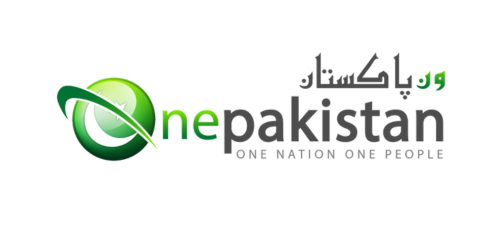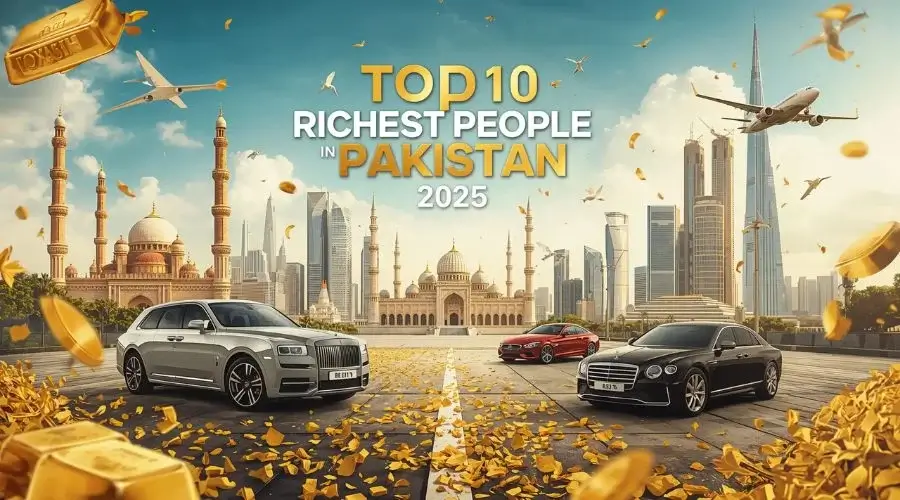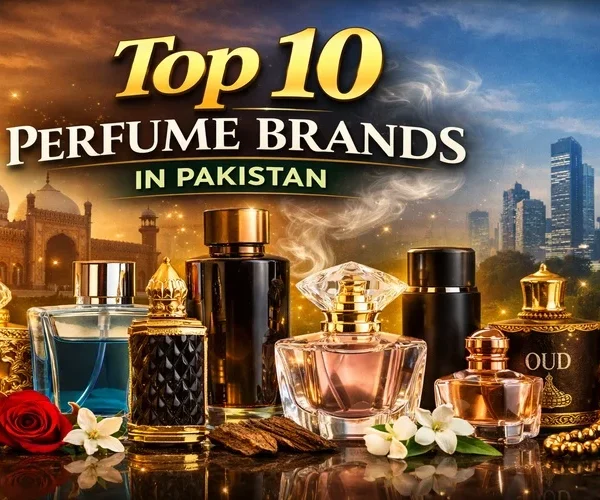If you came here to find out who tops the money charts in Pakistan, you’re in the right place. This guide to the top 10 richest people in Pakistan 2025 keeps things simple. We explain who they are, where their wealth comes from, and why rankings shift from year to year. You will also see the net worth idea explained in plain English, so the list makes sense even if you do not follow markets every day.
Here is the big picture. Net worth is an estimate of what someone owns minus what they owe. In Pakistan that usually means stakes in big business groups, real estate, listed company shares, and overseas assets. Prices move, the rupee moves against the dollar, and companies gain or lose value. That is why one person can lead the list this quarter and slip a place the next. It is normal. It is also why we use ranges rather than a single hard number.
What you will get from this page. A clean ranking for 2025, short profiles for each name, a sector map showing where most wealth sits, and a quick method section that tells you exactly how we worked out the estimates. If you only want the headline, the list is easy to scan. If you like the details, the notes on valuation and currency will help you see the logic behind every figure.
Methodology and Currency Notes
The figures for the top 10 richest people in Pakistan are based on publicly available financial data, business valuations, and credible market estimates from sources such as business journals and wealth trackers. These numbers represent approximate net worth in Pakistan and may vary with stock performance, currency exchange, and property valuations.
All values are presented in US dollars (USD) for international comparison, with local Pakistani rupee (PKR) equivalents adjusted using current exchange rates. Since wealth can fluctuate due to business expansions, market shifts, or global economic trends, the rankings should be viewed as informed estimates rather than fixed values.
Who is the richest person in Pakistan in 2025
It depends on how you define the list. If you count Pakistanis by origin no matter where they live, the top spot in 2025 goes to Shahid Khan. His wealth comes from auto parts manufacturing through Flex N Gate along with high profile sports ownership in the United States. That mix puts him in the multibillion dollar range and well ahead of most Pakistan based fortunes.
If you limit the ranking to people who live and build primarily in Pakistan, Mian Muhammad Mansha usually sits at number one. He leads the Nishat Group with large stakes in banking, cement, textiles, and energy. Because these holdings are tied to local markets and the rupee, his estimated net worth moves with share prices and currency, yet it remains at the top among resident business families.
Here is the simple takeaway. Shahid Khan leads among Pakistanis worldwide. Mian Muhammad Mansha leads among Pakistan based tycoons. Different lists pick different number ones because they use different scopes and currency dates. Our table below shows both with clear ranges in USD and PKR so you can see the context behind each name.
Profiles of the Top 10 Richest People in Pakistan
When we talk about the richest Pakistanis, the list includes both global business giants of Pakistani origin and local tycoons who built their empires within the country. This mix shows how Pakistanis have created influence not only in domestic markets but also on international platforms. To understand this better, we will first look at those whose wealth and success mainly grew abroad, and then move to those who dominate industries inside Pakistan.
Pakistanis worldwide by origin
Some of the wealthiest Pakistanis earned their fortune abroad but remain proud of their roots. These individuals represent Pakistan on the global stage and have built empires in industries like sports, retail, and investment. Their success stories are often highlighted by platforms like Forbes, which tracks the net worth of billionaires worldwide.
1. Shahid Khan
- Origin: Lahore, Pakistan
- Base: United States
- Source of Wealth: Automotive parts, Sports franchises
- Highlights: Owner of Flex-N-Gate, Jacksonville Jaguars (NFL), and Fulham F.C. (UK)
- Estimated Net Worth: Over $12 billion
Shahid Khan is the most prominent Pakistani-born billionaire on the global stage. From working as a dishwasher when he moved to the US, he went on to build Flex-N-Gate into a multibillion-dollar automotive company. His investments in sports and entertainment have made him one of the best-known Pakistani-origin entrepreneurs worldwide.
2. Sir Anwar Pervez
- Origin: Rawalpindi, Pakistan
- Base: United Kingdom
- Source of Wealth: Wholesale and retail (Bestway Group)
- Highlights: Founder of Bestway Group, one of the largest wholesale businesses in the UK
- Estimated Net Worth: Around $4.5 billion
Sir Anwar Pervez started his journey driving buses in Bradford before launching Bestway. His story is often cited as an example of resilience and vision, as he transformed a small corner shop into a massive business empire spanning wholesale, retail, cement, and banking.
3. Zameer Choudrey (Bestway Group)
- Origin: Punjab, Pakistan
- Base: United Kingdom
- Source of Wealth: Retail, Construction, Finance
- Highlights: CEO of Bestway Group and influential figure in UK-Pakistan business relations
- Estimated Net Worth: Around $1.5–2 billion
Zameer Choudrey, the nephew of Sir Anwar Pervez, played a major role in expanding Bestway’s reach. Under his leadership, the group entered banking and construction while strengthening its position as a top UK wholesaler.
4. Ashar Aziz
- Origin: Karachi, Pakistan
- Base: United States (Silicon Valley)
- Source of Wealth: Technology and Cybersecurity
- Highlights: Founder of FireEye, a global cybersecurity leader
- Estimated Net Worth: Around $700 million
Ashar Aziz made his mark in Silicon Valley by founding FireEye, which became a key player in cybersecurity solutions worldwide. His success story highlights the potential of Pakistani-origin tech entrepreneurs in the global market.
5. Mian Muhammad Mansha (Global Assets)
- Origin: Chiniot, Pakistan
- Base: Pakistan with overseas investments
- Source of Wealth: Banking, Textiles, Cement
- Highlights: International banking and textile ventures in addition to his domestic empire
- Estimated Net Worth: Over $3 billion
Though Mansha is primarily based in Pakistan, his global banking and textile operations give him an international footprint. He is often seen as a symbol of Pakistan’s growing economic influence abroad.
6. Malik Riaz (Overseas Projects)
- Origin: Sialkot, Pakistan
- Base: Pakistan with Middle East ventures
- Source of Wealth: Real estate (Bahria Town)
- Highlights: Founder of Bahria Town with projects extending to Gulf countries
- Estimated Net Worth: Over $1.5 billion
Malik Riaz is known for building Pakistan’s largest private real estate company, Bahria Town. His overseas projects, particularly in the Gulf, have further expanded his influence in property development.
7. Sadruddin Hashwani
- Origin: Karachi, Pakistan
- Base: Pakistan with global hospitality ventures
- Source of Wealth: Hospitality and energy (Hashoo Group)
- Highlights: Owner of Pearl Continental and Marriott hotels, with interests abroad
- Estimated Net Worth: Over $1.2 billion
Hashwani’s name is tied to hospitality excellence in Pakistan and beyond. His group owns some of the country’s most prestigious hotels and has extended its brand internationally.
8. Iqbal Z. Ahmed
- Origin: Lahore, Pakistan
- Base: Pakistan with overseas energy investments
- Source of Wealth: Energy and Power
- Highlights: Chairman of Associated Group with energy projects extending abroad
- Estimated Net Worth: Around $1 billion
Iqbal Z. Ahmed is a major figure in Pakistan’s energy sector. His business interests in oil, gas, and power also have a footprint outside the country, making him an influential player in regional energy markets.
9. Tariq Saigol
- Origin: Lahore, Pakistan
- Base: Pakistan with textile exports worldwide
- Source of Wealth: Textiles and Manufacturing
- Highlights: Saigol Group with major international export presence
- Estimated Net Worth: Around $850 million
The Saigol family is among the earliest industrialists in Pakistan. Tariq Saigol expanded the group’s textiles and industrial operations with a strong export-driven approach, connecting Pakistan’s industry to the global market.
10. Overseas Pakistani Entrepreneurs
- Origin: Various regions of Pakistan
- Base: Middle East, UK, North America
- Source of Wealth: Retail, Trade, Energy, and Services
- Highlights: Regional leaders in construction, wholesale, and retail sectors
- Estimated Net Worth: Varies, with many crossing multimillion-dollar valuations
Beyond the headline names, many overseas Pakistanis have quietly built large businesses across the Gulf, Europe, and North America. These entrepreneurs contribute significantly to remittances and enhance Pakistan’s reputation abroad.
Worldwide Top 10 Richest People (2025)
| Rank | Name | Origin | Base (Country) | Source of Wealth | Estimated Net Worth |
| 1 | Elon Musk | South Africa | United States | Tesla, SpaceX, X, Investments | $210 billion |
| 2 | Bernard Arnault | France | France | LVMH (Luxury Goods) | $200 billion |
| 3 | Jeff Bezos | United States | United States | Amazon, Blue Origin | $190 billion |
| 4 | Mark Zuckerberg | United States | United States | Meta (Facebook, Instagram) | $160 billion |
| 5 | Larry Ellison | United States | United States | Oracle, Investments | $150 billion |
| 6 | Warren Buffett | United States | United States | Berkshire Hathaway | $140 billion |
| 7 | Bill Gates | United States | United States | Microsoft, Investments | $125 billion |
| 8 | Steve Ballmer | United States | United States | Microsoft, LA Clippers | $115 billion |
| 9 | Mukesh Ambani | India | India | Reliance Industries | $108 billion |
| 10 | Larry Page | United States | United States | Google (Alphabet) | $105 billion |
Pakistan Based Top 10 Richest People
1. Mian Muhammad Mansha
- Origin: Chiniot, Pakistan
- Base: Lahore, Pakistan
- Source of Wealth: Banking, Textiles, Cement, Energy
- Highlights: Founder of Nishat Group, major stakes in MCB Bank and Nishat Mills
- Estimated Net Worth: Around $3.5 billion
Mansha is considered one of the most influential business tycoons in Pakistan. From textiles to banking and energy, his group represents a diversified empire that has made him a symbol of Pakistan’s industrial and financial power.
2. Malik Riaz Hussain
- Origin: Sialkot, Pakistan
- Base: Islamabad, Pakistan
- Source of Wealth: Real Estate Development (Bahria Town)
- Highlights: Founder of Bahria Town, Pakistan’s largest private real estate project
- Estimated Net Worth: Around $1.5–2 billion
Malik Riaz is known for reshaping Pakistan’s real estate sector with Bahria Town’s massive housing and infrastructure projects. His developments brought modern housing concepts to Pakistan and established him as one of the country’s wealthiest figures.
3. Asif Ali Zardari
- Origin: Nawabshah, Sindh
- Base: Karachi, Pakistan
- Source of Wealth: Agriculture, Real Estate, Investments
- Highlights: Former President of Pakistan, linked with major agricultural and property holdings
- Estimated Net Worth: Around $1.8 billion
Zardari combines politics with business influence. His wealth stems from vast agricultural lands, real estate investments, and business connections, making him one of the richest politicians in the region.
4. Nawaz Sharif & Family
- Origin: Lahore, Pakistan
- Base: Lahore, Pakistan
- Source of Wealth: Steel (Ittefaq Group), Real Estate, Agriculture
- Highlights: Former Prime Minister, Ittefaq Foundry and international properties
- Estimated Net Worth: Around $1.5 billion
The Sharif family built their fortune through steel and industrial ventures before expanding into real estate and agriculture. Nawaz Sharif’s political career has always been closely tied to his family’s financial standing.
5. Sadruddin Hashwani
- Origin: Karachi, Pakistan
- Base: Karachi, Pakistan
- Source of Wealth: Hospitality and Energy (Hashoo Group)
- Highlights: Owner of Pearl Continental and Marriott hotels in Pakistan
- Estimated Net Worth: Around $1.2 billion
Hashwani is a leading figure in Pakistan’s hospitality industry. His hotels are landmarks across the country, and his ventures in oil and gas have further expanded his business influence.
6. Nasir Schon
- Origin: Karachi, Pakistan
- Base: Karachi, Pakistan and Dubai
- Source of Wealth: Real Estate, Business Ventures (Schon Group)
- Highlights: Known for luxury developments and diversified projects in Pakistan and abroad
- Estimated Net Worth: Around $1 billion
Nasir Schon, through Schon Group, has established himself as a major real estate and investment player. His projects represent a blend of luxury and innovation in both Pakistan and international markets.
7. Iqbal Z. Ahmed
- Origin: Lahore, Pakistan
- Base: Lahore, Pakistan
- Source of Wealth: Energy and Power (Associated Group)
- Highlights: Chairman of Associated Group, leader in oil and gas business
- Estimated Net Worth: Around $1 billion
Ahmed is among the most influential names in Pakistan’s energy industry. His company has been central in meeting energy demands, with projects that also extend beyond Pakistan.
8. Rafiq Habib & Habib Family
- Origin: Karachi, Pakistan
- Base: Karachi, Pakistan
- Source of Wealth: Banking, Finance, Education (Habib Group)
- Highlights: Owners of Habib Bank Limited, Habib University, and other ventures
- Estimated Net Worth: Around $900 million–$1 billion
The Habib family has been an economic powerhouse for decades. With strong roots in finance, they have also invested in education and philanthropy, giving them both wealth and social recognition.
9. Dewan Mushtaq Group (Dewan Family)
- Origin: Karachi, Pakistan
- Base: Karachi, Pakistan
- Source of Wealth: Textiles, Automobiles, Finance
- Highlights: Known for textile exports, automobile assembly, and finance companies
- Estimated Net Worth: Around $800–900 million
The Dewan family established themselves in textiles before branching into auto and financial services. They remain one of the most prominent business families in Pakistan.
10 Tariq Saigol (Saigol Group)
- Origin: Lahore, Pakistan
- Base: Lahore, Pakistan
- Source of Wealth: Textiles, Cement, Energy
- Highlights: Leader of Saigol Group with major roles in Pakistan’s industrial development
- Estimated Net Worth: Around $850 million
The Saigol family are pioneers of industrial development in Pakistan. Tariq Saigol has maintained the legacy by strengthening their textile and manufacturing base, with exports contributing significantly to national revenue.
Table of Pakistan Based Top 10 Richest People
| Rank | Name / Family | Source of Wealth | Estimated Net Worth |
| 1 | Mian Muhammad Mansha | Banking, Textiles, Cement, Energy | $3.5 billion |
| 2 | Malik Riaz Hussain | Real Estate (Bahria Town) | $1.5–2 billion |
| 3 | Asif Ali Zardari | Agriculture, Real Estate, Investments | $1.8 billion |
| 4 | Nawaz Sharif & Family | Steel, Real Estate, Agriculture | $1.5 billion |
| 5 | Sadruddin Hashwani | Hospitality, Energy (Hashoo Group) | $1.2 billion |
| 6 | Nasir Schon | Real Estate, Investments (Schon Group) | $1 billion |
| 7 | Iqbal Z. Ahmed | Energy, Power (Associated Group) | $1 billion |
| 8 | Rafiq Habib & Habib Family | Banking, Finance, Education (Habib Group) | $900M–1 billion |
| 9 | Dewan Mushtaq Family | Textiles, Automobiles, Finance | $800–900 million |
| 10 | Tariq Saigol (Saigol Group) | Textiles, Cement, Energy | $850 million |
Sector Breakdown of Wealth in Pakistan
When we look at the top billionaires in Pakistan, their wealth does not come from a single industry. Different sectors play a huge role in shaping the financial landscape of the country.
Real estate and construction stand out as the largest contributors. Many of the richest people in Pakistan have built their empires through housing societies, commercial developments, and mega construction projects.
The textile industry is another powerful sector. As one of Pakistan’s biggest export markets, textiles have allowed families and entrepreneurs to grow fortunes that continue to expand globally.
Banking and finance have also created immense opportunities. Investments, private banks, and financial institutions have produced a steady stream of wealth for several top business figures.
Then comes technology and telecom, a fast growing area where startups and service providers are slowly climbing the ranks. Though smaller in comparison, this sector is showing promising potential for the future.
Finally, agriculture and food businesses remain important. Pakistan’s economy still relies heavily on farming and agribusiness, and some of the leading names in this field have secured positions among the wealthiest.
Sector-Wise Wealth Contribution in Pakistan
| Sector | Share of Wealth Among Top Richest Pakistanis | Key Insight |
| Real Estate & Construction | ~40% | Dominates wealth creation through housing societies and large projects |
| Textile & Manufacturing | ~20% | Strong export base that continues to expand globally |
| Banking & Finance | ~15% | Private banks and investments contribute a steady stream of income |
| Technology & Telecom | ~10% | Emerging sector with fast growth and future potential |
| Agriculture & Food Business | ~10% | Remains crucial as Pakistan’s backbone industry |
| Other Sectors | ~5% | Includes services, trade, and miscellaneous ventures |
Year-on-Year Changes
The wealth rankings of Pakistan’s richest people rarely stay static. Each year brings shifts based on market performance, political stability, and global economic trends. For example, those connected to industries like real estate, textiles, and technology often see sharp rises when demand surges. On the other hand, anyone heavily dependent on volatile sectors such as oil or imports can face sudden declines.
Comparing this year’s list with the previous one highlights some clear movements. A few names have climbed higher due to expanding businesses and stronger international ties, while others have slipped as new players entered the market. These changes not only reflect individual strategies but also tell a broader story about how Pakistan’s economy is evolving year by year.
Philanthropy and Civic Footprint
Wealth in Pakistan is not only measured by assets and businesses but also by the impact created through philanthropy. Many of the country’s richest individuals dedicate significant portions of their resources to healthcare, education, disaster relief, and social welfare. Their charitable foundations and trusts fund hospitals, scholarships, and housing projects that reach millions of people every year.
Some business leaders are particularly known for linking their success with community development. By building schools, supporting universities, and sponsoring healthcare initiatives, they create opportunities that extend well beyond their corporate influence. In recent years, contributions during natural disasters and national emergencies have further highlighted their civic role, showing that financial power can translate into meaningful social change.
Philanthropy also strengthens their public image, making them not just business leaders but also civic figures. This dual role emphasizes the importance of wealth being used as a tool for progress and resilience in Pakistan.
Closing Note
Wealth in Pakistan is more than just numbers on a list. It reflects the industries driving the country forward, from textiles and real estate to technology and manufacturing. While fortunes shift year after year, the stories behind these billionaires highlight ambition, resilience, and strategic vision. As Pakistan continues to grow, these individuals will play an important role not only in shaping the economy but also in setting examples of innovation, responsibility, and civic contribution.
FAQs about the Richest People in Pakistan 2025
1. Who is the richest person in Pakistan in 2025?
According to updated wealth estimates, Shahid Khan remains the richest Pakistani in 2025. He built his fortune through business ventures in the United States, including automotive parts and sports franchises.
2. What is the net worth of Shahid Khan?
Shahid Khan’s net worth in 2025 is estimated to be over 12 billion dollars. His wealth mainly comes from Flex-N-Gate, the Jacksonville Jaguars NFL team, and other investments.
3. Are there any Pakistani billionaires on the Forbes list?
Yes, names like Shahid Khan, Mian Muhammad Mansha, and a few others often appear on Forbes’ billionaire rankings. These lists highlight Pakistanis who have made a global impact through industries such as banking, energy, and textiles.
4. How do Pakistan’s richest people earn their wealth?
The top 10 richest Pakistanis come from diverse sectors. Their wealth is spread across real estate, textile exports, banking, energy, telecom, and overseas business ventures.
5. Does the government verify net worth figures of billionaires?
No, official government records usually do not provide net worth estimates. Most figures come from international publications and financial analysts like Forbes, Bloomberg, and business research firms.
6. Who is the youngest billionaire in Pakistan?
While most billionaires are established industrialists, younger entrepreneurs in tech and startups are gradually rising. However, no confirmed “young billionaire” is currently recognized in the 2025 lists.
7. Do these billionaires pay taxes in Pakistan?
Yes, most of them are among the highest taxpayers in the country, though debates on tax transparency and exemptions remain common in public discussions.
8. Which industry produces the most wealth in Pakistan?
Real estate, textiles, and energy continue to dominate. However, banking, telecom, and overseas investments also play a significant role in building billionaire fortunes.
9. Has the number of billionaires in Pakistan increased in recent years?
Yes, the number has seen gradual growth. Economic diversification and global expansion by Pakistani businesses have helped increase billionaire representation.
10 Are Pakistani billionaires involved in philanthropy?
Many of them are. They contribute to education, healthcare, and poverty alleviation through private foundations and charitable trusts, creating a civic footprint beyond business success.




